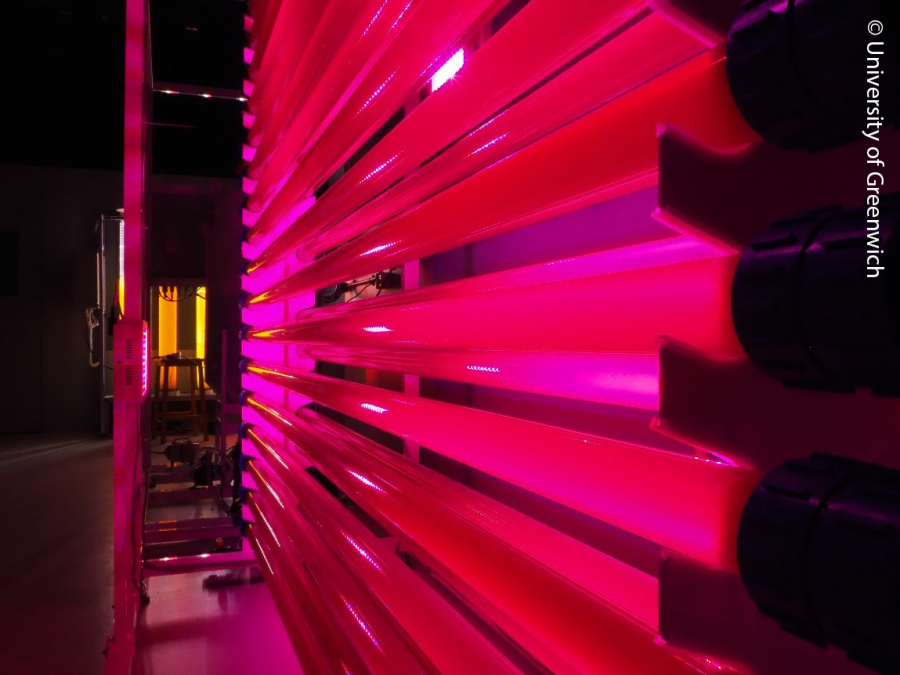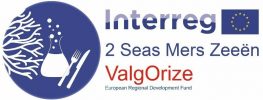Project news Dunaliella salina at the University of Greenwich
The team at the University of Greenwich has established the ‘Valgorize algal pilot facility’ to cultivate microalgae, starting with Dunaliella salina.

The Greenwich team is working on scaling up production of the alga under red lights in the Greenwich pilot, to produce a powder with an ideal taste profile, balanced amino acid composition and optimal content of 9-cis beta-carotene to add as a new food supplement for European markets and to develop a new line of nutricosmetics.
The team decided to work on Dunaliella first for a number of reasons:
- First, its carotene content is around 1000-fold greater than in carrots. When the alga is cultivated under red light, much of this carotene appears in a rarely found form, as 9-cis beta-carotene. 9-cis beta-carotene is difficult to synthesize but is importantly associated with therapeutic effects in a number of diseases including atherosclerosis, diabetes, psoriasis and ophthalmologic diseases.
- Second, microalgae are capable of providing the ten essential amino acids required by animals and humans and Dunaliella salina protein is no exception.
- Third, Dunaliella salina power is well-positioned to enter European markets as a Novel Food, which is needed before it can be incorporated into food or used as food in Europe. The team is hopeful that by accumulating data to showcase the tasty, safe and healthy properties of Dunaliella, this will one day become a reality.
- Powder from a related strain, Dunaliella salina var bardawil has ‘GRAS’ status awarded by the US FDA (Food and Drug Administration) meaning that its ‘Generally Regarded as Safe’.
- Dunaliella powder has been eaten as a Traditional Food in Japan for many years.
- Dunaliella extracts (E-160 IV) made of essential oils with a content greater than 20% beta-carotene and which may also contain other carotenoids such as lutein, have been approved by the European Food Safety Authority for use as an additive for food, feed, for all drugs including those for eyes, dietary supplements and for cosmetics.
400L worth of tubes
The ‘Valgorize algal pilot facility’ is a food grade-facility fitted with a 400 L tubular photobioreactor, 150L tubular column photobioreactor unit, 6 Algem photobioreactors, 1 HT24 photobioreactor, and with 2 units of 0.5 m2 and 1 unit of 3.5 m2 mini-raceways to come, plus all associated equipment to harvest and process the algal biomass.
